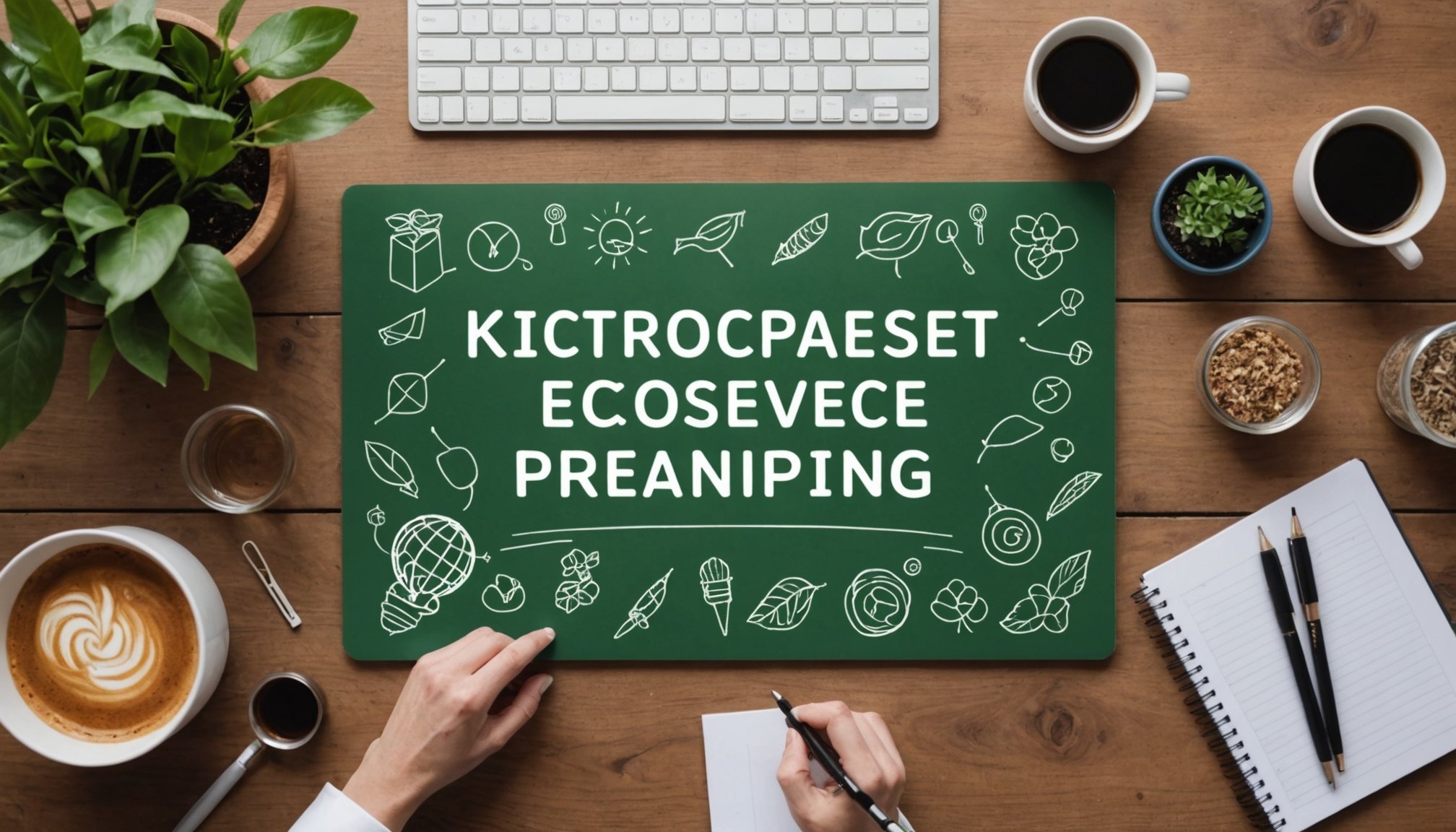Understanding the Eco-Conscious Event Planning Market
Eco-conscious event planning is gaining momentum as businesses and individuals recognise the importance of sustainable practices. This trend, characterised by environmentally friendly choices and reduced carbon footprints, is becoming a key player in today’s event planning industry.
Overview of Eco-Conscious Event Planning
The core of eco-conscious event planning lies in its focus on sustainability. Events are organised with minimal environmental impact using renewable resources, waste reduction techniques, and energy-efficient practices. This sustainable approach addresses ecological concerns and caters to a growing audience prioritising environmental stewardship.
Also to read : Key strategies for uk eco-friendly packaging businesses to meet environmental regulations
Market Statistics and Growth Potential in the UK
In the UK, the demand for eco-conscious event planning is increasing. Recent market studies indicate a steady rise in businesses adopting these practices, projecting significant growth potential over the next decade. As sustainability becomes more prevalent, investments in sustainable practices are proving lucrative.
Audience Demographics Interested in Sustainable Events
Understanding those drawn to sustainable events is crucial. Age groups such as millennials and Gen Z are notably supportive, often choosing brands that reflect their values. This demographic, known for advocating environmental responsibility, is a driving force behind the market trends in eco-conscious event planning, demanding transparency and commitment from the organisers.
Additional reading : Unlocking financial success: key strategies for tech startups in the uk – an in-depth guide
Developing a Business Plan
Creating a robust business plan is essential for success in the eco-conscious event planning sector. Key components include a clear mission statement, financial forecasts, marketing strategies, and an operational framework that supports sustainability. This foundation guides the company’s direction and attracts clients who value environmental responsibility.
Establishing a Sustainable Business Model
A sustainable business model integrates ecological concerns into every aspect of operations. This includes using local and recycled materials, implementing energy-efficient processes, and selecting venues with green certifications. Adopting sustainable practices not only aligns with modern values but also offers long-term cost benefits and market differentiation.
Setting Short and Long-Term Goals
Defining both short and long-term goals is critical in steering an entrepreneurial strategy. Short-term goals may focus on reducing waste and enhancing brand recognition. Long-term objectives might aim for achieving carbon neutrality or expanding into new markets. Strategic goals ensure continuous progress and adaptation in a dynamic industry.
Short-term:
- Reduce event waste by 20% within the first year.
- Increase social media engagement by showcasing sustainable practices.
Long-term:
- Achieve carbon neutrality in five years.
- Expand brand presence internationally by collaborating with global eco-friendly venues.
Conducting Market Research
Understanding the intricacies of market research is paramount for thriving in the eco-conscious event planning sector. It begins with a detailed competitors analysis, helping businesses discern their unique strengths and opportunities within the industry. An effective approach involves evaluating competitors’ sustainable efforts and identifying gaps that your services can fill.
Identifying client needs and preferences is another critical aspect of market research. Understanding what potential clients seek in sustainable events allows planners to tailor their offerings effectively. Using methods such as surveys and focus groups helps uncover specific preferences and drives innovation, aligning business offerings with client expectations.
Utilizing feedback methods are instrumental for effective research and continuous improvement. Gathering insights from past events and incorporating customer feedback allows event planners to enhance their service delivery. These methods build a customer-centric approach, refining services to meet evolving demands.
By emphasizing comprehensive market research, planners can gain a substantial edge in the eco-conscious event planning market. They can craft strategies that not only attract environmentally-minded clients but also adapt to market changes. This proactive approach ensures relevance and sustains business growth amidst changing ecological values.
Sourcing Eco-Friendly Suppliers
Building relationships with eco-friendly suppliers is essential for ensuring the sustainability of your event planning business. The selection of vendors and sustainable products should be based on stringent criteria that meet ecological requirements. This not only includes evaluating the environmental impact of the products but also the ethical practices of the suppliers themselves.
It’s important to establish vendor partnerships with those committed to sustainable practices. Working together, you can create a network that supports environmentally conscious goals. Look for suppliers who offer certifications such as Fair Trade, FSC, or those who adhere to internationally recognised sustainability standards. These certifications can assure quality control and adherence to ecological guidelines.
When navigating partnerships, transparency is crucial. The vendors should provide comprehensive information about their products and processes. This relationship doesn’t just end with procurement; continuous collaboration and communication help ensure that both parties are aligned with long-term sustainability objectives.
Incorporating these eco-friendly practices not only enhances the environmental profile of your events but also builds trust with clients interested in sustainable practices. Emphasising quality control and certifications can be a differentiator in the competitive market of eco-conscious event planning.
Branding Your Eco-Conscious Event Planning Business
In creating a brand for your eco-conscious event planning business, it’s essential to foster a business identity that reflects sustainable values. A well-defined brand encompasses a compelling mission statement and a visually appealing logo. These elements form the foundation of your branding efforts, communicating your dedication to eco-conscious practices.
Developing a mission statement that resonates with your audience is vital. It should articulate the core principles of sustainability and environmental stewardship. A mission statement guides not only your operations but also influences how your brand is perceived by clients.
When designing a logo, simplicity and relevance should be key considerations. A logo that subtly incorporates elements of nature or sustainability can effectively communicate your brand’s ethos at a glance.
Sustainable messaging is another crucial aspect. Ensure that all communication, whether digital marketing or client interactions, consistently highlights your commitment to eco-conscious event planning. This consistency will reinforce your brand image and earn trust.
Strategies for communicating sustainability can include transparent practices such as showcasing behind-the-scenes of your sustainable efforts on social media platforms or incorporating case studies that highlight successful eco-friendly events. By doing so, you affirm your brand’s dedication to sustainability, attracting like-minded clients.
Marketing Strategies for Eco-Conscious Events
In the quest to effectively promote sustainable events, leveraging digital marketing becomes pivotal. A dynamic approach involves utilizing social media platforms to create engaging content that not only informs but inspires audiences about eco-conscious initiatives. Consistent updates about sustainable practices and behind-the-scenes insights into event planning can captivate potential clients and foster community engagement.
Collaboration with like-minded brands and influencers underscores the significance of partnerships in the eco-conscious event planning scene. Engaging with brands that prioritize sustainability can amplify your reach and credibility. Influencers who resonate with eco-friendly values can introduce your event to a broader audience, adding authenticity and engagement.
Content marketing emerges as a cornerstone for establishing authority in this niche. Crafting compelling narratives around past events or successful sustainable strategies can build your brand’s image as an eco-conscious leader. Case studies, blogs, and videos highlighting your commitment to sustainability can further solidify your status as a reliable and forward-thinking planner.
In this evolving landscape, the integration of digital tools and strategic collaborations not only enhances your brand’s visibility but also effectively communicates the value and necessity of eco-conscious event planning.
Navigating Regulations and Compliance
Understanding the intricate regulations surrounding eco-conscious event planning is crucial. In the UK, event planning laws require organisers to adhere to stringent sustainability standards, ensuring events cause minimal ecological impact. This includes waste management protocols, energy usage limits, and sourcing of sustainable materials. Knowledge of these legal frameworks is essential for compliance.
Ensuring compliance not only involves understanding these regulations but also implementing sustainable practices that meet or exceed legal expectations. This might involve using venues with certain environmental certifications, like BREEAM, or engaging with suppliers who adhere to strict eco-friendly guidelines. Such steps reassure stakeholders of your commitment to eco-conscious principles.
Legal considerations also extend to documentation and reporting. Event planners should maintain accurate records of their sustainable initiatives, providing transparency in their environmental impact assessments. These documents are not only necessary for legal requirements but also bolster your business’s reputation by showcasing a dedication to sustainability.
Adhering to compliance helps avoid costly fines and enhances your brand image, positioning your business as a leader in eco-conscious event planning. By proactively navigating the regulatory landscape, businesses can ensure that their operations are both legally sound and environmentally responsible.
Case Studies and Success Stories
Exploring case studies and success stories offers invaluable insights into the realm of eco-conscious event planning. These real-world examples highlight innovative strategies and the tangible benefits of implementing sustainable practices. By examining compelling instances of events that prioritized environmental responsibility, planners can better understand effective approaches.
One notable case is the Green Gathering Festival in the UK, which showcases how large-scale events can achieve sustainability. The festival implements zero-waste policies, utilizes renewable energy sources, and supports local economies by sourcing food and materials locally. By cultivating a sustainable model, the Green Gathering upholds eco-conscious values while maintaining a vibrant attendee experience.
Learning from industry pioneers, such as festivals, provides event planners with tested strategies that demonstrate resilience and innovation in action. Key takeaways from these case studies involve the importance of setting clear sustainability goals and engaging stakeholders committed to environmental stewardship.
Emphasizing success stories allows businesses to envision the market potential and impact of their sustainable efforts. By adapting lessons from these success cases, planners can enhance their strategies and improve eco-conscious market positioning, ultimately leading to a thriving, environmentally responsible event planning business.
Addressing Potential Challenges
Navigating the challenges of eco-conscious event planning requires robust strategies and effective problem-solving skills. One common issue is balancing environmental goals with budget constraints. Sustainable resources often come at a premium, making cost management a critical aspect of planning. To mitigate this, planners might focus on prioritizing eco-friendly elements that offer the most significant impact and return on investment.
Logistics can also present complex challenges. Coordinating with various eco-friendly suppliers who share your sustainability ethos may lead to scheduling conflicts or supply chain issues. Developing a flexible delivery schedule and maintaining open communication with vendors can significantly reduce potential disruptions.
Another challenge is ensuring participant engagement and compliance with sustainable practices during the event. Whether it’s proper waste disposal or minimal energy consumption, real-time educational platforms or pre-event workshops can inform attendees and increase adherence.
To enhance resilience in your operations, implementing a comprehensive risk management plan can be invaluable. This may include regular monitoring of sustainable practices, contingency planning for unexpected events, and establishing clear roles and responsibilities within your team. By addressing these potential obstacles methodically, event planners can ensure successful, sustainable outcomes.
Resources for Further Learning
To excel in eco-conscious event planning, access to relevant resources and ongoing education is crucial. Delve into books and courses designed for sustainable event planning. These resources provide valuable insights, from foundational concepts to advanced practices in sustainability.
Networking opportunities are instrumental in this evolving industry. Engage with established professionals and innovators through industry events and online forums. Establishing these connections can introduce you to best practices, emerging trends, and collaborative projects. Such interactions often lead to unique strategies and solutions tailored to your specific challenges.
Continuous education is vital to keeping pace with ever-changing market trends. Participating in industry networks helps you stay informed about the latest technologies and methodologies in eco-conscious event planning. These networks offer a platform to exchange ideas, discuss challenges, and celebrate innovations.
Consider exploring platforms such as Eventbrite and LinkedIn groups dedicated to sustainable practices for further learning. Such platforms frequently host webinars and workshops, providing direct access to thought leaders and experts. These avenues for learning and collaboration not only enhance your knowledge base but also position your business as a forward-thinking player in the eco-conscious realm.






